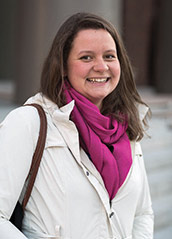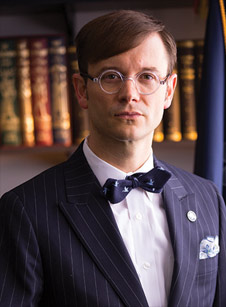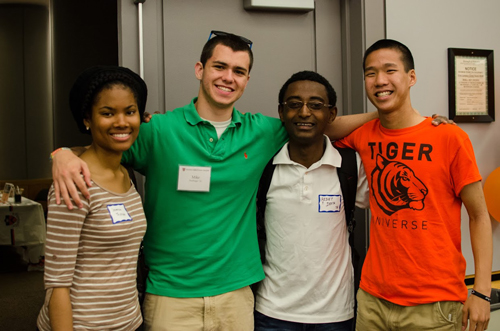All
The most recent articles, videos, blog entries, and more that have been added to ChristianUnion.org.
Course Reflects on Harvard's Religious History
By Brian Zhang, Harvard '15
In th Susan Overall, Harvard Class of 2014e spring semester, Harvard students taking Religion 1513: Harvard's History and Religious Evolution have a chance to study their university's religious roots in the classroom. With 60 undergrads and four Harvard Divinity School students enrolled, the class is the most popular in the religion department.
Susan Overall, Harvard Class of 2014e spring semester, Harvard students taking Religion 1513: Harvard's History and Religious Evolution have a chance to study their university's religious roots in the classroom. With 60 undergrads and four Harvard Divinity School students enrolled, the class is the most popular in the religion department.Dr. Stephen Shoemaker, the course's instructor, summarized the legacy of Harvard as "a history of left turns."While it is today regarded as a secular university, Harvard was founded in 1636 as a seminary for training Puritan ministers in the New England area.
The King's College President Greg Thornbury Speaks at Manhattan Salon
By Catherine Elvy, Staff Writer
 The new president of The King's College encouraged participants in a New York City Christian Union salon to reflect Christ as they labor in the powerful, but decidedly secular, corridors of their megalopolis.
The new president of The King's College encouraged participants in a New York City Christian Union salon to reflect Christ as they labor in the powerful, but decidedly secular, corridors of their megalopolis.Greg Thornbury spoke on February 20 at the ministry's quarterly salon, which was held at the editorial offices of First Things journal in Manhattan.Thornbury, who stepped into his newest leadership role in July, entitled his message, "He Is Not Far from Any of Us: The Art of Living and Working with People of Non-Faith."
During the evening, Thornbury told listeners to be aware that many of their atheistic and agnostic counterparts are open to meaningful discussions on topics of faith, but they are exhausted with cultural wars.
The following was a Plenary Session at the 2014 Ivy League Congress on Faith and Action, presented by Dr. Charles Gilmer, the president of The Impact Movement.(41:27)
The following was a Plenary Session at the 2014 Ivy League Congress on Faith and Action, presented by Christian Union Teaching Fellow, Nick Nowalk. (45:50)
The following was a Plenary Session at the 2014 Ivy League Congress on Faith and Action, presented by Ken Eldred. (40:00)
The following was a Plenary Session at the 2014 Ivy League Congress on Faith and Action, presented by Baroness Caroline Cox. (46:09)
In March, Christian Union brought together nearly 400 students from the eight Ivy League universities for the fourth Ivy League Congress on Faith and Action. This is one of the four plenary sessions from the Congress, with Baroness Caroline Cox. (46:09)
To listen to this presentation, click the play button below. To download an mp3 file to listen to while offline or using a portable device, click on the download button ( ) in the window below:
) in the window below:
To listen to this presentation, click the play button below. To download an mp3 file to listen to while offline or using a portable device, click on the download button (
In March, Christian Union brought together nearly 400 students, from a variety of ministries and representing all eight Ivy League universities, for the fourth Ivy League Congress on Faith and Action. This is one of the plenary sessions from the Congress, with Nick Nowalk. (45:50)
To listen to this presentation, click the play button below. To download an mp3 file to listen to while offline or using a portable device, click on the download button ( ) in the window below:
) in the window below:
To listen to this presentation, click the play button below. To download an mp3 file to listen to while offline or using a portable device, click on the download button (
In March, Christian Union brought together nearly 400 students---from a variety of ministries, representing all eight Ivy League universities---for the fourth Ivy League Congress on Faith and Action. This is one of the plenary sessions from the Congress, with Ken Eldred. (40:00)
To listen to this presentation, click the play button below. To download an mp3 file to listen to while offline or using a portable device, click on the download button ( ) in the window below:
) in the window below:
To listen to this presentation, click the play button below. To download an mp3 file to listen to while offline or using a portable device, click on the download button (






